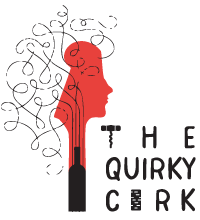
My New Love Affair: Markogianni Winery
August 7, 2024 2Amber Wine, Amphora, European Wines, Greek Wine, Orange Wine, Red Wine, Rose Wine, White Wine, Wine Reviews
Used to be that Markogianni was not a winery with which I was familiar. A friend recommended their Vorias and Helios amber Assyrtiko to me some time ago. That one wine was all it took really to sell me on the whole winery. Subsequent trips have seen me tracking down more and more of their wines and I am dying to visit them.
 Located to the far west of the country, near the Ionian sea and ancient Olympia, Markogianni Winery is a family-run winery launched in 1982. They soon converted to organic cultivation and in 2001 were certified by DIO. Between their own vineyards and the growers with whom they work, the Markogianni family works with a fascinating group of grapes to make their wines and tsipouro. Their white grapes include: Assyrtiko, Roditis, and Asproudes. For reds, they have: Kolliniatiko, Mavrodaphne, Refosco, Mavroudi, Vertzami.
Located to the far west of the country, near the Ionian sea and ancient Olympia, Markogianni Winery is a family-run winery launched in 1982. They soon converted to organic cultivation and in 2001 were certified by DIO. Between their own vineyards and the growers with whom they work, the Markogianni family works with a fascinating group of grapes to make their wines and tsipouro. Their white grapes include: Assyrtiko, Roditis, and Asproudes. For reds, they have: Kolliniatiko, Mavrodaphne, Refosco, Mavroudi, Vertzami.
Markogianni Vorios & Helios Orange Roditis, 2020
Markogianni Winery is one of a few in the PGI Ilia under which they make the Vorios & Helios Orange Roditis. Interestingly, you’ll notice the label proclaims this to be a dry white wine. Greek winemaking regulations have not yet changed to allow wine to legally be labeled as ‘orange’ or ‘amber’. As such, many skin contact wines include the color in the name.
The Roditis grapes for this wine came from organic, 30+ year old vines. They spent 12 days on the skins to achieve the wine’s amber color, then fermented with indigenous yeasts. Bottled unfiltered. A little cloudy in the glass (to be expected) with a delicate but rich and fruity bouquet. For me, this was like a mashof of spring and fall in a pear orchard. All things pear with blossom, fruit, and fresh mash combined with a whiff of tilled orchard soil. That palate showed some of the same earthiness in the form of fresh soft herbs like marjoram, yet more pear, and freshly popped popcorn kernels. Juicy and lightly tannic with nice acidity and 13.5% alcohol.
And another killer label to boot!
Markogianni Vorios & Helios Orange Rinitis
Killer labels, along with organic grapes, spontaneous fermentation, and limited filtration all seem to be hallmarks of Markogianni Winery. The Vorios & Helios Orange Rinitis has all of those, along with a little surprise. Well, tis only a surprise if, like me, you saw it, though “Huzzah! Another wine from Markogianni!” and bought it without reading the back label…
I bought this thinking that I’d never heard of the grape Rinitis. For good reason, since there isn’t a grape called Rinitis. This wine is also made from Roditis to which I further thought, “Hang on, haven’t I had the Orange Roditis already?”. Well, yes and no. I’d had the PGI Ilia Orange Roditis. This, is a traditional designation Retsina!
I’ve had sparkling Retsina before (surprisingly refreshing) but never before skin contact Retsina. This macerated with skins for 10 days then fermented with native yeasts, during which time the pine resin would have been added, then spent seven months on the lees. One sniff and I thought, yep, that’s Retsina in there. While the resinous aroma reminded primary, earthy notes of thyme and bright citrus began to seep out of the glass. The palate gave some popcorn and marjoram flavors along with orange rind and, air freshener. Textured but not really tannic with decent acidity and 13.2% alcohol, I found it an intriguing wine. Cannot honestly say I actually liked it. But something made me go back a couple few times to retry it.
 Markogianni Lagos & Chelona, 2021
Markogianni Lagos & Chelona, 2021
We know I don’t super love rosé, but I had to get this one for the label if nothing else! Lagos & Chelona, the Hare & Turtle is a blend of Roditis (45%) Refosco (22%), Mavrodaphne (20%), and Asproudes (13%). The grapes for this undergo the same treatment but separately. The two white varieties (Roditis and Asroudes) get stemmed and macerated for 12 hours and in a separate tank, the two red varieties do the same. After the 12 hours, the two batches are blended, they spend five days in an open tank with periodic punch downs.
The resulting wine was a burnt pink and I’m really sorry I didn’t capture a picture of it. Semi-aromatic and fruity-earthy in the nose with red currants, raspberry, woody herbs, and bruised apple peel. The palate presented a little funky initially with the tang of apple cider vinegar. The red fruits soon caught up with a burst of raspberry and more thyme.
Love these labels. They’re going on my Christmas tree!
Markogianni Diagon Διαγών, 2020
I’ve fallen in love with Markogianni wines for several reasons. The labels! The experimentation for sure, but also because Markogianni works with lesser-known varieties. The Diagon is one such wine made with the grape, Vertzami (Βερτζάμι). Vertzami is a relatively rare grape that originates (I think) in the Ionian Islands, but it also grows in the Western Peloponnese (i.e. where Markogianni Winery is). It gives savory, full-bodied wines with relatively high alcohol, lots of tannin, and medium to high acidity. 
Markogianni macerated this for eight days in open tanks then fermented it (with native yeasts) in stainless steel. After fermentation, the wine aged for 24 months in French oak barrels.
The wine poured a deep deep red, again which I didn’t capture in a picture. The lighting in my friends’ dining room just sucks and I never get good wine pictures in their Athens apartment. An earthy wine, the bouquet here gave eucalyptus and violet with fresh potting soil, black fruits, and cigar box. On the palate, plums and currants joined the floral and tobacco notes from the nose, enveloped in fine suede tannins, with a chocolatey finish. Very nice structure and acidity with 14.5% alcohol.
Markogianni Aheron Αχερων Κολλινιατικο, 2020
 The Atheron utilizes another rare grape: Kolliniatiko. This one so rare, that the only information I could find came from the winery’s own website. It seems to be indigenous to the winery’s area and their grapes come from 40-year-old, own-rooted vineyards around Mount Olympus.
The Atheron utilizes another rare grape: Kolliniatiko. This one so rare, that the only information I could find came from the winery’s own website. It seems to be indigenous to the winery’s area and their grapes come from 40-year-old, own-rooted vineyards around Mount Olympus.
The winery macerates the grapes for six days before fermentation and lees ageing. Part of the wine, 60%, ages for 12 months in French oak while the other 40% remains in stainless steel tanks before blending and bottling (unfiltered). Like the Vertzami, this deeply colored wine had quite the earthy character, but not in the same savory way, more a foresty way. Very foresty really with aromas of freshly split wood, forest floor, spice, and smoke. Fruity and spicy on the palate with red berries, maybe a bit of rhubarb and forest spices carried on medium but persistent tannins, with juicy acidity, and 14% alochol.
I’m looking forward to exploring more wines from Markogianni Winery the next time I visit Athens!




